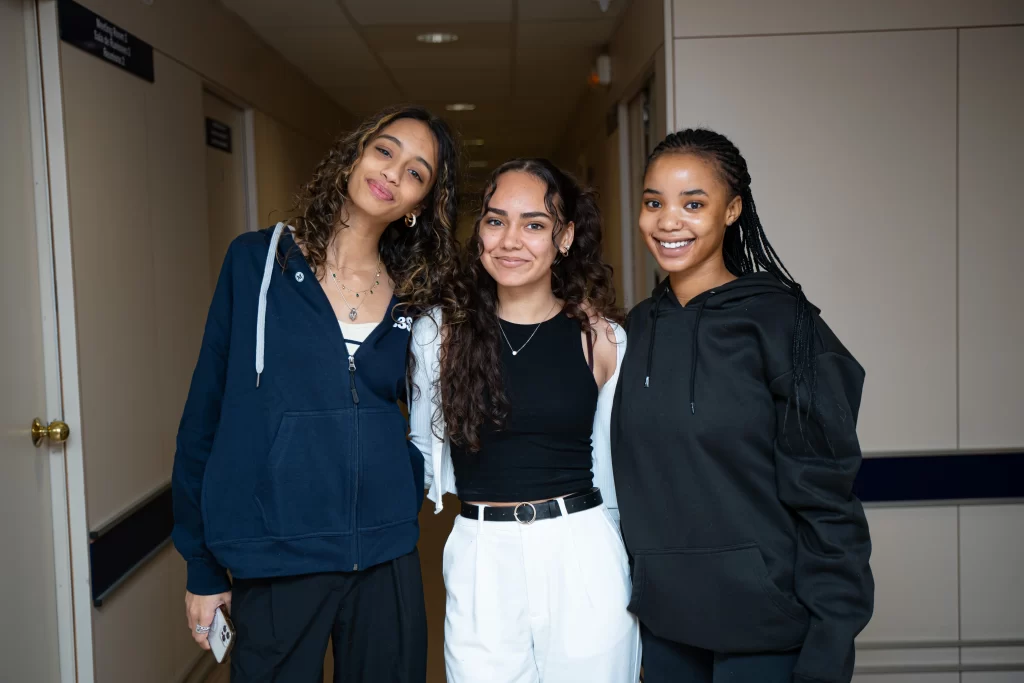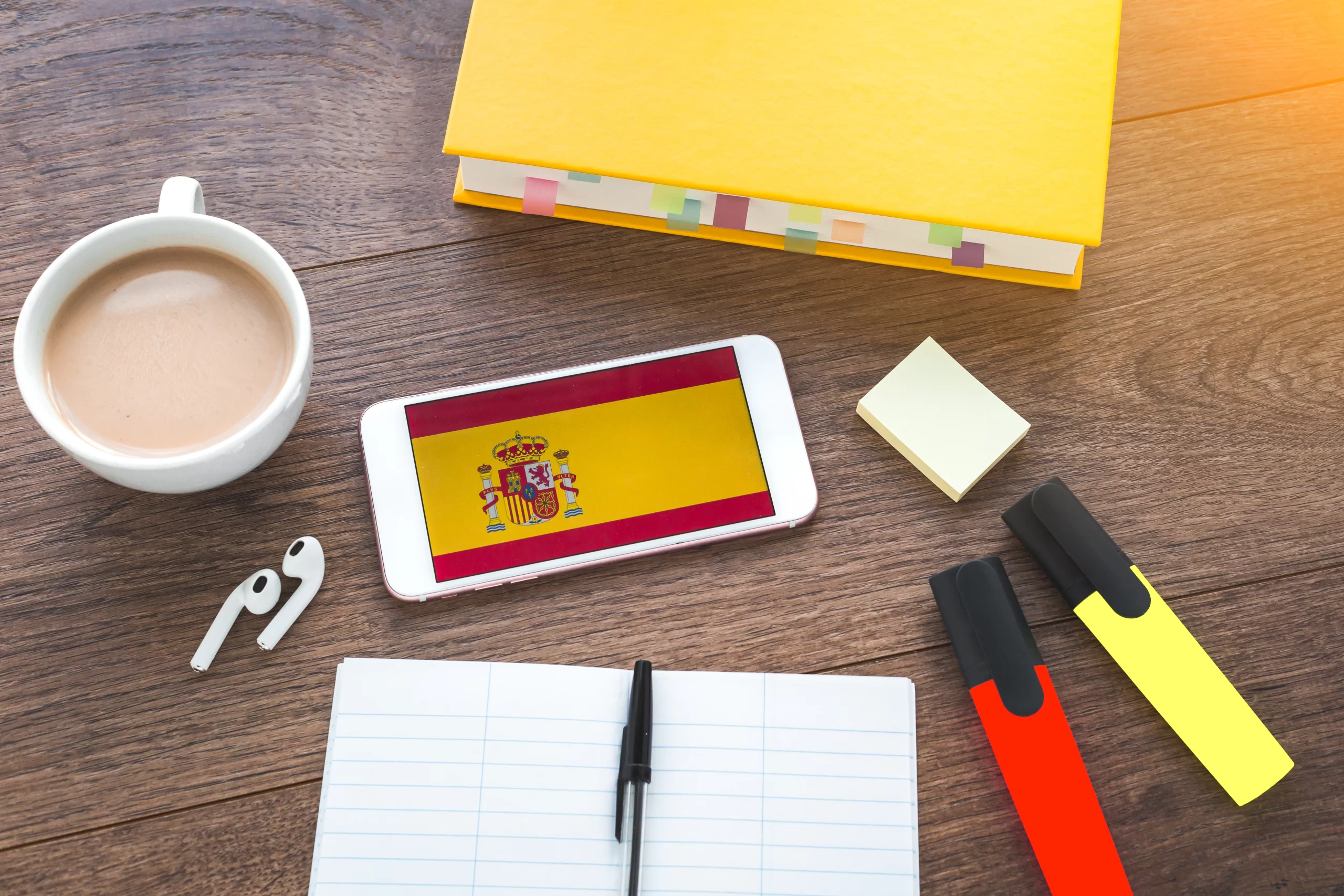Programme Learning Outcomes
In the context of modern education, one of the key challenges for higher learning institutions is designing curricula that accommodate a diverse range of learning preferences. As businesses become increasingly global and interdisciplinary, the demand for graduates of master degree in Spain who possess not only knowledge but also adaptive and critical thinking skills has intensified. Recognizing this, C3S Business School in Barcelona, Spain, has taken significant steps to design its master’s program in Barcelona that aligns with varied learning styles. These efforts can be categorized into four distinct learner preferences: auditory, tactile (kinesthetic), visual, and reading/writing-based learners. Through these classifications, C3S is making continuous strides toward creating student-centered, multi-sensory learning environments that foster a more holistic, effective educational experience. The school’s unique approach makes it a standout choice for anyone considering a master’s program in Spain.
Auditory Learners: Emphasizing Discussion and Oral Engagement in Master’s Program in Spain
Auditory learners thrive when they can process information through listening and speaking. Recognizing this, C3S Business School incorporates a wide range of auditory-based learning methods into its master program in Spain. For example, seminars, group discussions, and interactive lectures are integral to all C3S programs including MBA with Project Management and Global MBA. In these settings, students are encouraged to engage in verbal communication, which is not only essential for auditory learners but also fosters collaborative knowledge-building and leadership skills, as seen in the school’s constructivist learning approach.
Moreover, inquiry-based learning at C3S Business School enhances auditory learning by promoting curiosity through dialogue. In the Post graduate diploma in Tourism and Hospitality Management, for instance, students engage in case study discussions that encourage them to articulate their thoughts, analyze issues verbally, and debate potential solutions. This method allows auditory learners to absorb content more effectively while simultaneously honing their critical thinking and communication skills—abilities that are crucial in the dynamic fields of business and management.
“Seminars and collaborative discussions are crucial for developing not just knowledge, but also the communication and leadership skills essential for business professionals,” says Prof. Philip Mayer, a London-based faculty at Regent’s University London.
A 2023 survey of C3S students revealed that 85% of those who identified as auditory learners felt that the school’s focus on seminars and collaborative discussions significantly enhanced their learning outcomes. This commitment to auditory learning aligns with the school’s overall objective of fostering a student-centered learning environment, where the emphasis is on participation, interaction, and continuous engagement. For students seeking a master program in Spain, this learning style provides them with an edge in the global job market.
Dr. Aida Mehrad, head of academics at C3S Business School in Barcelona, says, “The focus on verbal engagement and inquiry in our programs helps auditory learners absorb content effectively while sharpening their critical thinking.”
Tactile Learners in Master Program in Spain: Experiential Learning and Hands-On Projects
Tactile, or kinesthetic, learners absorb knowledge best through hands-on activities and practical experiences. In this regard, C3S Business School has designed programs that incorporate Problem-Based Learning (PBL), which is particularly beneficial for tactile learners. Through PBL, students are required to tackle real-world challenges, apply theoretical frameworks, and test solutions in a practical setting. This approach is evident in the Post graduate diploma in Health and Social Care Management, where students participate in practical projects related to healthcare delivery systems and patient management.
In these courses, students are given the opportunity to simulate real-world decision-making, mirroring the environments they will encounter in their professional lives. For tactile learners, this method provides a critical bridge between theory and practice. It not only helps them grasp complex concepts but also enables them to feel more engaged in their learning process through active experimentation. For anyone considering a master program in Barcelona or elsewhere, tactile learning provides valuable, hands-on experience that sets them apart from the competition.
“Problem-based learning allows students to not only learn but also apply their knowledge in real-life scenarios. This approach significantly enhances their understanding and retention,” says Dr. P. R. Datta, executive chair of the Centre for Business & Economic Research (CBER) in London.
The integration of tactile learning is not limited to project-based exercises. Many courses at C3S also include internships, fieldwork, and lab-based learning components. In the BSc (Hons) in Business Computing and Information Systems, the first choice among science and technology students in the bachelor’s programs in Spain, for example, students engage in hands-on lab sessions where they develop technological solutions to current business problems, reinforcing their learning through direct interaction with technology.
Research suggests that kinesthetic learners make up approximately 30% of any student population, and C3S Business School ensures that its pedagogical methods are inclusive of this significant proportion. A 2023 internal study found that 78% of tactile learners at C3S reported that the practical, hands-on nature of the projects and internships greatly enhanced their ability to retain information and apply it effectively in the workplace.
“Hands-on experiences are vital for tactile learners. They help bridge the gap between theory and practice,” says Hiren Raval, CEO of C3S Business School.

Visual Learners in Master Program in Barcelona: Leveraging Graphical and Spatial Representations
Visual learners, who understand information better when it is presented through images, diagrams, charts, and spatial layouts, also benefit from C3S Business School’s pedagogical approach. Integrative learning at C3S Business School combines various disciplines at bachelor and master program in Barcelona, and in doing so, incorporates visual tools like mind maps, flow charts, and infographics to help students synthesize information. For example, in MBA with project management and Global MBA program, the most common choice among the master’s programs in Spain, the complex business strategies are often illustrated with diagrams that highlight how various functions—marketing, finance, operations—interconnect.
Moreover, visual aids are frequently used in problem-based learning scenarios. When solving real-world business problems, students are encouraged to visualize solutions through business model canvases, customer journey maps, and flow charts. These visual tools enable learners to see the relationships between different variables, making complex business issues easier to understand and resolve.
C3S also incorporates virtual simulations in its coursework, such as in the Post graduate Diploma in Tourism and Hospitality Management, a preferred master’s program in Spain, where students use software to create and manage virtual hotel operations. This method not only engages visual learners but also gives them practical insights into tourism management processes.
“Incorporating visual learning methods helps students see relationships between various business concepts, enhancing their ability to solve complex problems,” says Dr. Daba Chowdhury, an associate professor in Digital Entrepreneurship at Christ Church Business School in Canterbury Christ Church University (CCCU).
A 2021 survey of graduates from C3S Business School showed that 82% of students with visual learning preferences felt that the inclusion of infographics, flowcharts, and virtual simulations greatly improved their understanding of complex theories and enhanced their ability to apply these concepts in professional settings. For students seeking a master program in Spain, these visual elements play a crucial role in ensuring that learning is not only accessible but also deeply engaging.
Dr. Maria Fernanda Dugarte, dean and director of Institutional Affairs at C3S Business School, says, “Our visual tools and simulations are designed to ensure that students can grasp complex concepts and apply them in real-world settings.”
Reading/Writing Learners in Master Program in Spain: Structured Learning through Text and Reflection
For students in bachelor and master program in Barcelona who prefer reading and writing as their primary learning mode, C3S Business School integrates reflective learning and extensive writing components into its master program in Spain. Reading/writing learners excel when they can engage with the material through written text and reflective exercises, allowing them to process and internalize information more effectively. C3S’s focus on Reflective Learning is particularly beneficial for these students, as it encourages them to keep journals, write essays, and engage in reflective self-assessments.
In the MBA, the flagship of master’s programs in Spain, for instance, students are required to maintain reflective journals that document their leadership decisions and group dynamics throughout the course. This reflective practice not only reinforces content but also fosters self-awareness and critical analysis, aligning with the pedagogical goal of nurturing leadership development. Furthermore, students who prefer reading and writing can deepen their learning by engaging with extensive reading materials and case studies, which are central to C3S’s inquiry-based learning model.
“Our reflective strategies encourage deep engagement with course material, fostering critical thinking and leadership development,” says Bela Raval, admission head of C3S Business School.
The school’s emphasis on writing is also evident in the coursework, where students regularly engage in research papers, business reports, and reflective essays. For instance, in the Post graduate diploma in Health and Social Care Management, one of the most sought after master’s programs in Spain, students are tasked with producing detailed reports on healthcare challenges, allowing them to refine their research and writing skills—both essential in academic and professional settings.
A 2023 survey revealed that 80% of C3S students who identified as reading/writing learners felt that the school’s focus on reflective learning and writing assignments helped them process information more deeply, leading to a better understanding of course material.
Conclusion: A Holistic and Inclusive Educational Approach in Master Program in Barcelona
By embracing a multi-sensory approach to education, C3S Business School ensures that its master program in Barcelona caters to the diverse learning preferences of its students. The school’s commitment to auditory learners through discussions and seminars, tactile learners through hands-on projects, visual learners through graphical and spatial tools, and reading/writing learners through reflective exercises and structured writing tasks creates a well-rounded, inclusive learning environment. This student-centered approach not only enhances learning outcomes but also prepares students to adapt to the complexities of the global business world.
In the evolving landscape of higher education, where personalized learning is increasingly recognized as key to student success, C3S Business School continues to lead the way in designing programs that not only convey information but also engage students in a meaningful, lasting manner. By recognizing and addressing the unique needs of auditory, tactile, visual, and reading/writing learners, C3S Business School ensures that all students have the opportunity to thrive academically and professionally in their chosen master program in Spain.
“We strive to create an educational ecosystem that recognizes the individual learning styles of each student, ensuring that all have the opportunity to succeed,” concludes Dr. Aida Mehrad.




